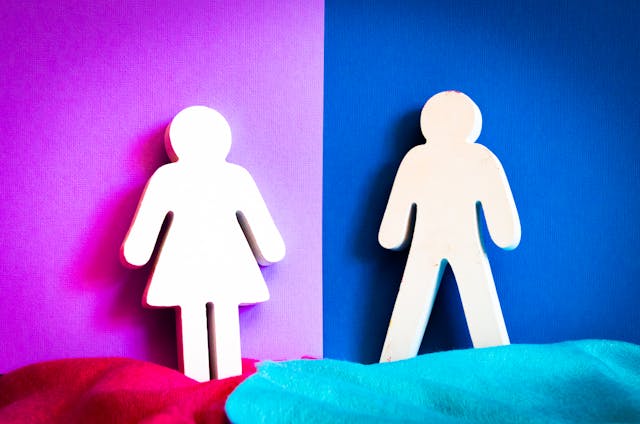Gender stereotypes – rigid, outdated norms dictating how individuals should behave based on their sex – have long shackled society. These stereotypes not only stifle personal expression but also have profound implications for mental health. As recruiters aiming to foster supportive and inclusive workplaces, understanding the impact of these stereotypes is crucial. This article delves into the effects of gender stereotypes on mental health and provides practical strategies for creating a more accepting environment.
Table of Contents
Gender Stereotypes and Mental Health: The Connection
Gender stereotypes significantly influence our expectations of men’s and women’s behavior, often leading to mental health issues when individuals feel forced to conform. Here’s how:
- Role Stress: Stereotypes can create stress when individuals feel compelled to perform roles that don’t align with their identities.
- Suppression of Emotions: Stereotypes, like the idea that men should always be strong and hide their feelings, can lead to emotional suppression, increasing vulnerability to mental health issues.
- Body Image Issues: Media-propagated stereotypes about the ‘ideal’ male and female body can cause body dissatisfaction, contributing to eating disorders and depression.
- Discrimination and Rejection: Non-conformity to gender norms often invites discrimination and rejection, leading to a heightened risk of mental health issues.
Recruiters: Champions of Change
Recruiters can play a pivotal role in breaking these detrimental stereotypes and fostering a healthier, more inclusive environment:
- Promote Inclusivity: Foster an inclusive culture by implementing policies that respect individual identity and expression. Encourage open dialogue about gender and mental health, and create safe spaces for sharing and discussion.
- Combat Stereotypes: Challenge gender stereotypes in your recruitment practices by promoting diversity in job advertisements and consciously avoiding gendered language. Explicitly state your commitment to inclusivity and equal opportunity in all job descriptions.
- Support Mental Health: Establish comprehensive mental health programs that include regular mental health check-ins, access to counseling services, and resources for self-care and stress management. Make these services accessible to everyone, regardless of gender.
- Encourage Diversity: Actively seek out and hire from a diverse pool of candidates, including those who defy traditional gender norms. Celebrate diversity in your team-building activities and company events.
- Training and Education: Implement regular training sessions to educate your workforce about gender stereotypes, unconscious bias, and their impact on mental health. Make such training a part of your onboarding process and a regular feature of ongoing professional development.
Breaking the Mold
The Pervasiveness of Gender Stereotypes
Gender stereotypes, deeply ingrained societal beliefs about the roles and behaviors considered appropriate for different genders, can profoundly impact individuals’ mental health. They can result in harmful biases, discrimination, and unrealistic expectations that can cause stress, low self-esteem, and a range of mental health issues. For example, men might feel pressured to conform to expectations of emotional stoicism and independence, while women might be expected to prioritise caring for others over their own needs. These stereotypes can limit individuals’ freedom to express themselves and live authentically, contributing to distress, anxiety, and depression.
Role of Recruiters in Breaking the Mold
Recruiters play a crucial role in fostering inclusive, diverse, and psychologically safe workplaces that actively counteract gender stereotypes. Their efforts in breaking these molds can have a ripple effect, contributing to healthier, more equitable societies. Here’s how:
- Encouraging Diversity: Recruiters can actively seek to create diverse teams by considering a wide range of candidates, regardless of their gender. They can also promote diverse role models in the organisation, showing that individuals of all genders can succeed in all types of roles.
- Challenging Biases: Recruiters can work to challenge and overcome their own unconscious biases, as well as those within the hiring process. This can involve using gender-neutral job descriptions and criteria, implementing bias-free recruitment processes, and promoting awareness and training around unconscious bias among hiring teams.
- Promoting Inclusivity: Recruiters can foster a culture of inclusivity, where individuals of all genders feel seen, heard, and respected. This can involve advocating for policies and practices that support all genders, such as flexible work arrangements, comprehensive parental leave policies, and equal opportunities for advancement.
- Supporting Mental Health: Recruiters can advocate for workplace mental health initiatives that support all employees. This includes ensuring access to mental health resources, promoting work-life balance, and fostering an open dialogue about mental health that challenges the harmful norms associated with gender stereotypes.
- Emphasising Skills Over Stereotypes: Recruiters should prioritise skills, qualifications, and individual merits over stereotyped assumptions about gender. By focusing on what individuals can bring to a role, recruiters can help dismantle harmful gender stereotypes.
Collective Efforts Towards Equality and Mental Health Support
Breaking down gender stereotypes requires collective efforts. Beyond recruiters, leaders, managers, and all employees play a role in this change. Together, they can promote a culture of acceptance and equality that allows everyone to thrive, regardless of their gender. This involves ongoing education about gender stereotypes, open discussions about mental health, and a consistent commitment to challenging biases and outdated norms.
By actively working to dismantle gender stereotypes, we can create work environments and societies that support the mental health and well-being of all individuals. In doing so, we liberate people from the constraints of gender stereotypes, allowing them to express themselves authentically and contribute their unique skills, experiences, and perspectives.
Key Takeaways
- Gender stereotypes lead to role stress, emotional suppression, body image issues, and experiences of discrimination, which all negatively impact mental health.
- Recruiters can counteract these stereotypes by promoting inclusivity, combating stereotypes, supporting mental health, encouraging diversity, and providing educational training.
- Breaking the mold of gender stereotypes requires collective effort but significantly contributes to a healthier mental environment in the workplace.


